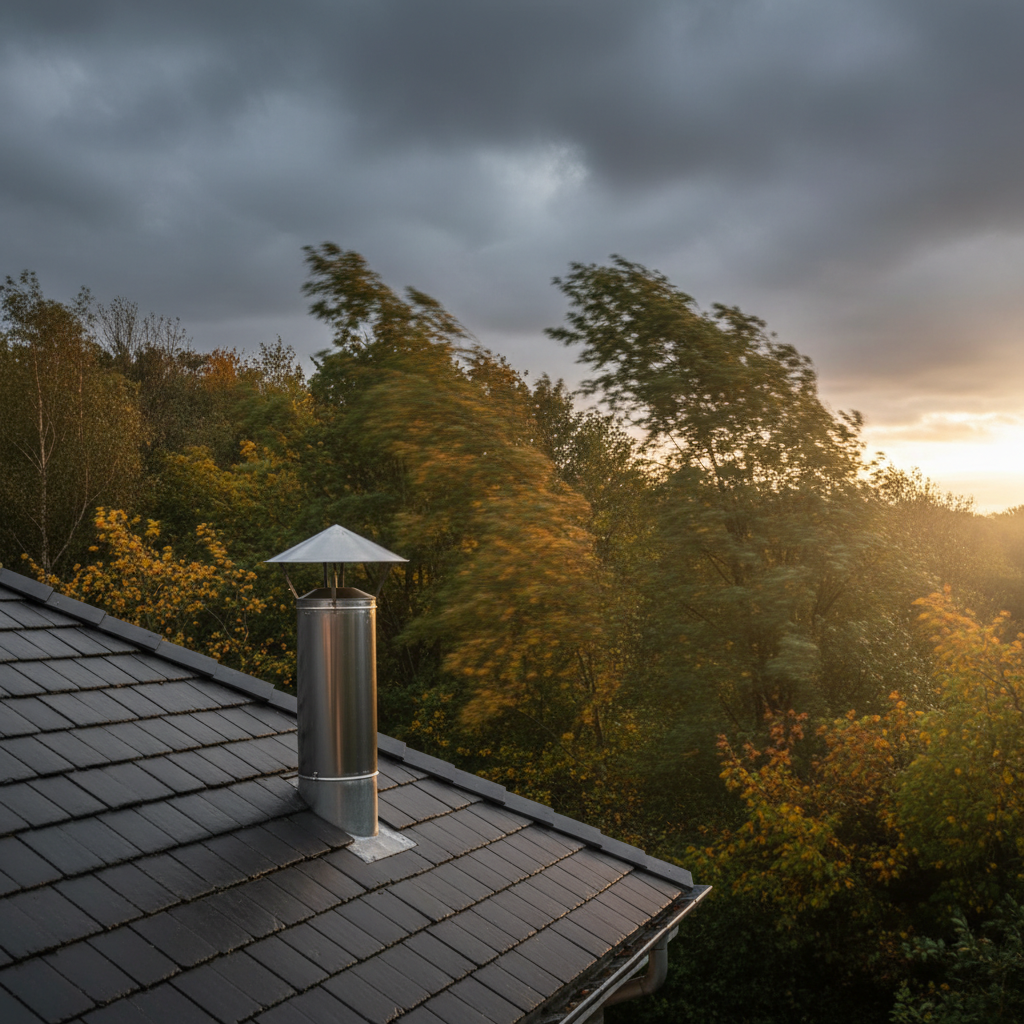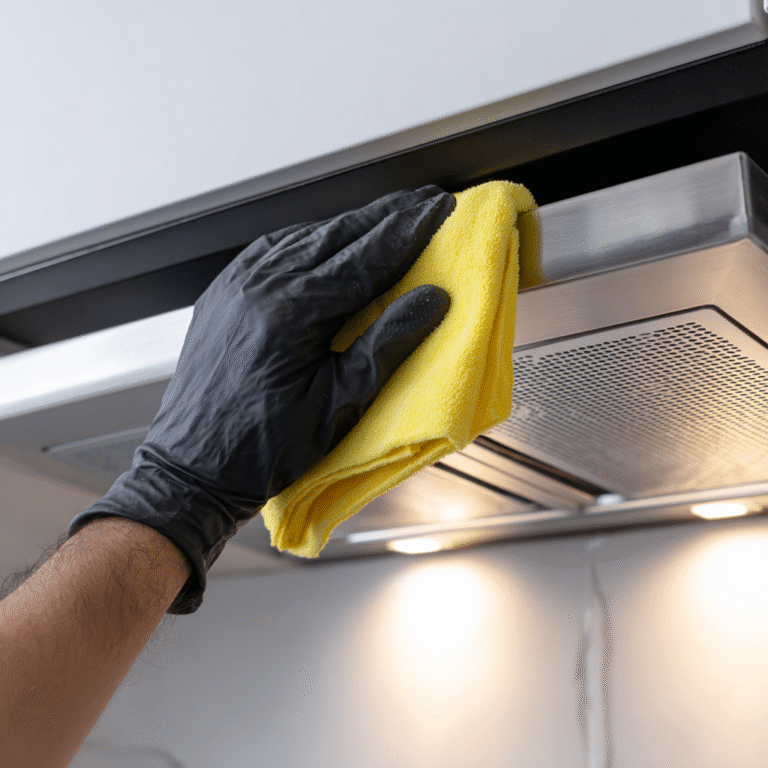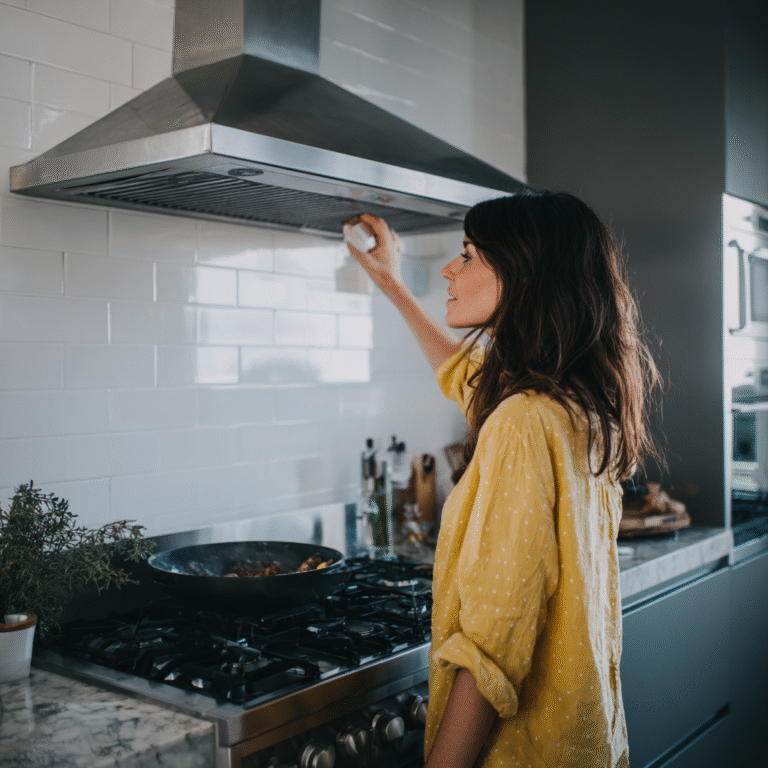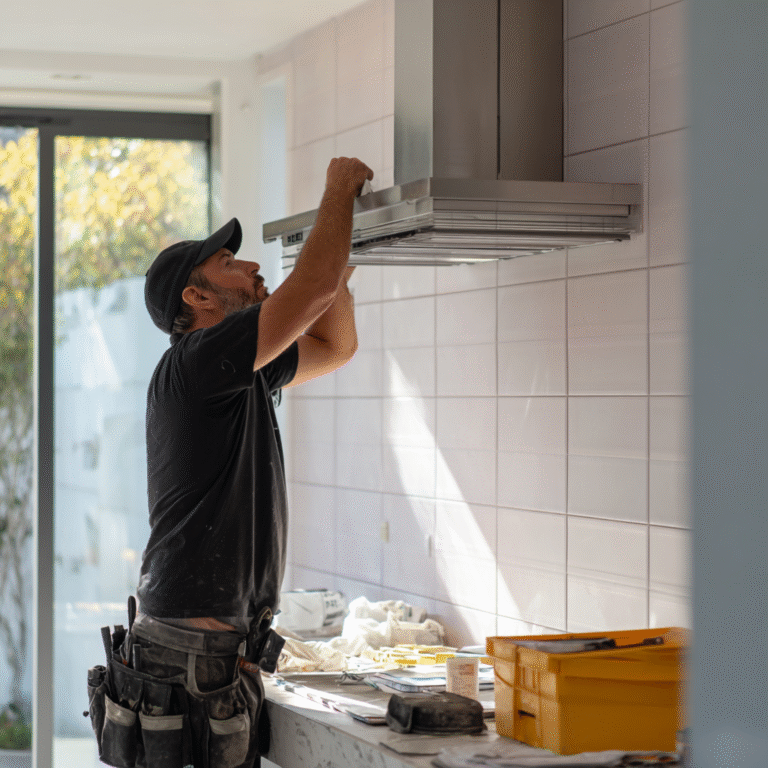Why Wind Matters for Your Rangehood: Ventilation on Blustery Days
When the weather turns blustery, most of us think about staying warm, keeping washing off the line, or securing garden furniture. But did you know that strong winds can also affect how your kitchen rangehood works? Proper ventilation isn’t just about clearing smoke and smells — it’s also about keeping your kitchen safe and comfortable, no matter what’s happening outside.
🌬️ How Wind Affects Your Rangehood
Your rangehood works by drawing air from the kitchen and venting it outside. On a calm day, this airflow is smooth and consistent. But on windy days, external conditions can push air back into the ducting. This can cause:
- Backdrafting: Instead of taking smoke and steam out, wind forces outside air back into your kitchen. This may bring cooking smells, dust, or even cold air inside.
- Whistling or rattling noises: Strong gusts can create noise through the ductwork, making your rangehood louder than usual.
- Reduced performance: If airflow is disrupted, the hood won’t clear steam or odours as effectively, leaving your kitchen stuffy.
🔧 Why Proper Installation Makes All the Difference
The good news is that with the right setup, your rangehood can handle windy conditions with ease. Professional installation ensures:

- Backdraft flaps or dampers are fitted — these one-way valves stop outside air from rushing back in.
- Weather cowls are placed on the external vent to protect against gusts and rain entering the duct.
- Correct duct routing avoids bends or placements that are more vulnerable to wind pressure.
- Tight, sealed fittings stop drafts and leaks around the rangehood.
🏡 The Safety & Comfort Factor
Strong winds don’t just cause minor annoyances — they can impact air quality inside your home. Backdrafting, in particular, can draw in dust, pollen, or even exhaust fumes if vents aren’t positioned properly. A correctly installed rangehood keeps your kitchen air clean and your home protected, no matter the weather outside.
✅ Final Word
On windy days, your rangehood should still work quietly and efficiently. If you notice smells, drafts, or unusual noise, it could be a sign that your system isn’t set up for blustery conditions. Getting a professional to check your installation — or upgrade old fittings — can make all the difference in keeping your kitchen safe and comfortable year-round.







